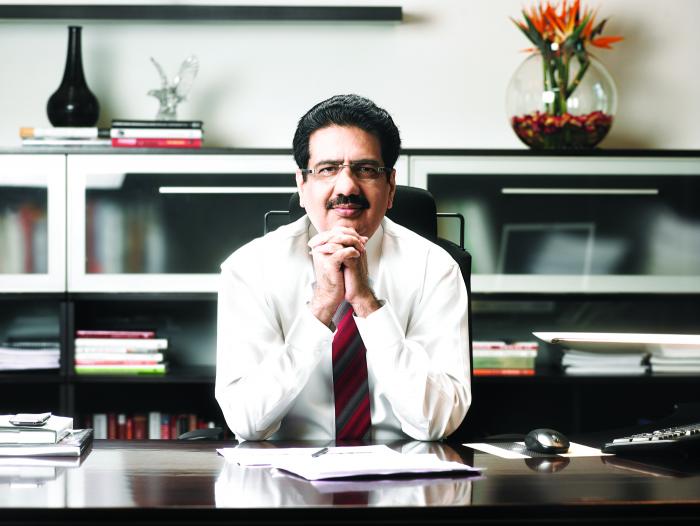5 Leadership Truths Olympics and Olympians Teach Us

The Olympics are like inspiration on steroids, said a friend of mine the other day. A leadership coach by profession, he was describing a training workshop where the trainees were asked to divide themselves into groups and select a name for their team. Out came the names immediately: Team Phelps, Team Bolt, Team Douglas…!
I wasn't surprised at all. Watching the athletes in action at the recently concluded Olyimpics was motivating beyond compare. Not only were the Olympians a treat to watch, their effort and attitude taught me some invaluable lessons in leadership. Each event, each sportsman, the highs and lows of each competition, told a story; an awe-inspiring story with a lesson within.
Expect setbacks and surprises, they are inevitable: The very first lesson I learned was how easily these sportstars took setbacks in their stride. These young men and women had worked relentlessly at their skills, stamina, focus, emotional strength, allowing themselves little or no slack. And yet, time and again, one saw them take setbacks and surprises, literally in their stride. There are endless examples. Seventeen year old ace swimmer Missy Franklin was faced with back to back races within 13 minutes of each other. She didn`t bat an eyelid and went on to win both, claiming gold in the second one. Indian wrestler Sushil Kumar was struck with a stomach infection before his final bout. He didn`t back off and wrestled his way to a silver. Yet, the most amazing story at London was that of Manteo Mitchell, who ran with a broken leg to help Team USA qualify for the final of the 4x400m relay! Looking back, he said, what drove him through the pain was the sight of his team-mate waiting for him to pass the baton on to him!
Leadership thrives at the grassroots, where there is most hunger for success: The second lesson I learned as I watched the Olympics was that a large percentage of people who made it to the victory stand were those who had worked tirelessly in the sidelights against all odds. The focus, the passion drives those at the grassroots most hungry for success. Take the example of 16 year old Gabby Douglas, the first African American to win an individual all round gold in gymnastics at London 2012. Looking at the brilliant smile, little would you know that it concealed the struggle she went through in a single parent family or that Gabby`s mother had to file bankruptcy just a few months before the Olympics. Yet Gabbys™ relentless pursuit of her goal overcame the adversity. Look at the young faces at the grassroots of your organization. Can you spot the innumerable Gabbys™ driven with their passion and desire for success?
There is no could’ve, would’ve or should’ve; what matters is 100 per cent effort: Think of the times when you have had to burn the midnight oil to meet a tight deadline. There are endless excuses that present themselves all night long to tempt you to give up midway and call it a night. Yet, as we saw at the Olympics, the will power to pull out all the stops along their path scripts the story of a champion. Take the example of Mary Kom, who won bronze medal in women`s boxing. She is a mother of two young boys! Can you imagine the number of reasons she could list for not being able to focus entirely on her training? Instead, she just blocked off all distractions and went all out. She emerged a winner on her son’s birthday. No wonder she is also known as Magnificent Mary.
Study your competition; know them like the back of your hand: If you follow any sport closely, you would notice how tactics are dramatically changed to counter each opponent. This is taken for granted in sports. In fact, this was particularly highlighted in the men’s basketball finals at London 2012 as Spain gave the US a run for their gold, with a customised defensive strategy that kept them going neck and neck right till the end. Do we leaders outside of sport change our tactics based on the competition we are up against? When we go make a competitive business pitch, for instance, we study the prospective client’s business to see where we can add value. But, do we also study the competing companies to assess what would give us a winning edge over them?
Surround yourself with the best possible team: Finally, as I mentioned in my last blog, it takes a village to build a champion. The role played by the team that works with the Olympians is as important as the effort made by the athlete as exemplified by the team that helped Oscar Pistorius write history as the first double amputee to run in the Olympics. Yet for those of us who follow tennis, we saw another powerful example of the team building a champion. Andy Murray has often battled with Roger Federer, but has never been able to defeat him as convincingly as he did in these Olympics. At London, according to many a tennis analyst, the fact that Ivan Lendl recently joined his coaching team tilted the scales in his favour. There is just no contesting the role of a team in making or breaking a champ, inside or outside of the sports arena.
There is so much one can learn just watching such an extraordinary display of sportsmanship. What leadership lessons can you draw from these Olympics? I am sure you can add several more to this list and would love to read them.

